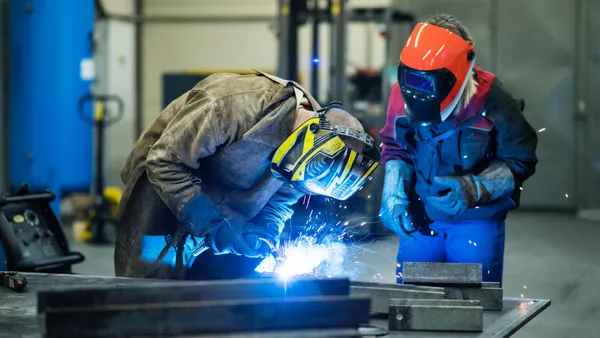Dive Brief:
- Four in five employees think artificial intelligence (AI) will make work more empowering and engaging, but think employers' silence on the topic is creating fear and concern, a new survey by The Workforce Institute at Kronos Incorporated reveals. In the survey, "Engaging Opportunity: Working Smarter with AI," 58% of organizations internationally haven't discussed AI's impact on the workforce with employees. The survey polled 3,000 employees across eight nations.
- Employees in the survey hope AI will improve their role, but not replace it. Although 82% of employees see AI as an opportunity to improve their jobs, about 34% are concerned that AI could someday totally replace them. That viewpoint includes 42% of Gen Z employees. Two-thirds of employees said they'd feel more at ease if employers were more transparent about the future.
- The survey also shows that employees from all eight countries surveyed would welcome AI if it simplified or automated time-consuming internal processes (64%), helped better balance their workload (64%), increased fairness in subjective decisions (62%), or ensured that managers made better choices affecting individual employees (57%).
Dive Insight:
AI is already moving into all facets of the workplace, from robots in manufacturing and retail to algorithms in employee data analysis. Employers need to walk workers through their own organizations to point out where AI is already in place and where it could or might be be expanded. Transparency is critical; employees aren't likely to be replaced all at once, but they should have an idea of which jobs AI is likely to claim, so that they can upskill or choose different careers.
Currently, many readings on AI are only projections. A Gartner study predicts that AI could bring in more jobs, some 2.3 million, to offset the 1.8 million it replaces. But these new jobs are expected to require higher-level or specialized skills.
People analytics, digital interview platforms and other AI-assisted functions are becoming commonplace in HR departments; wider adoptions of such technology require a culture of trust. Therefore, HR will likely need to lead educating employees about the workplace of the future, their role in it and how they might prepare for a more digitized workplace through training and upgrading and retooling their skills.












